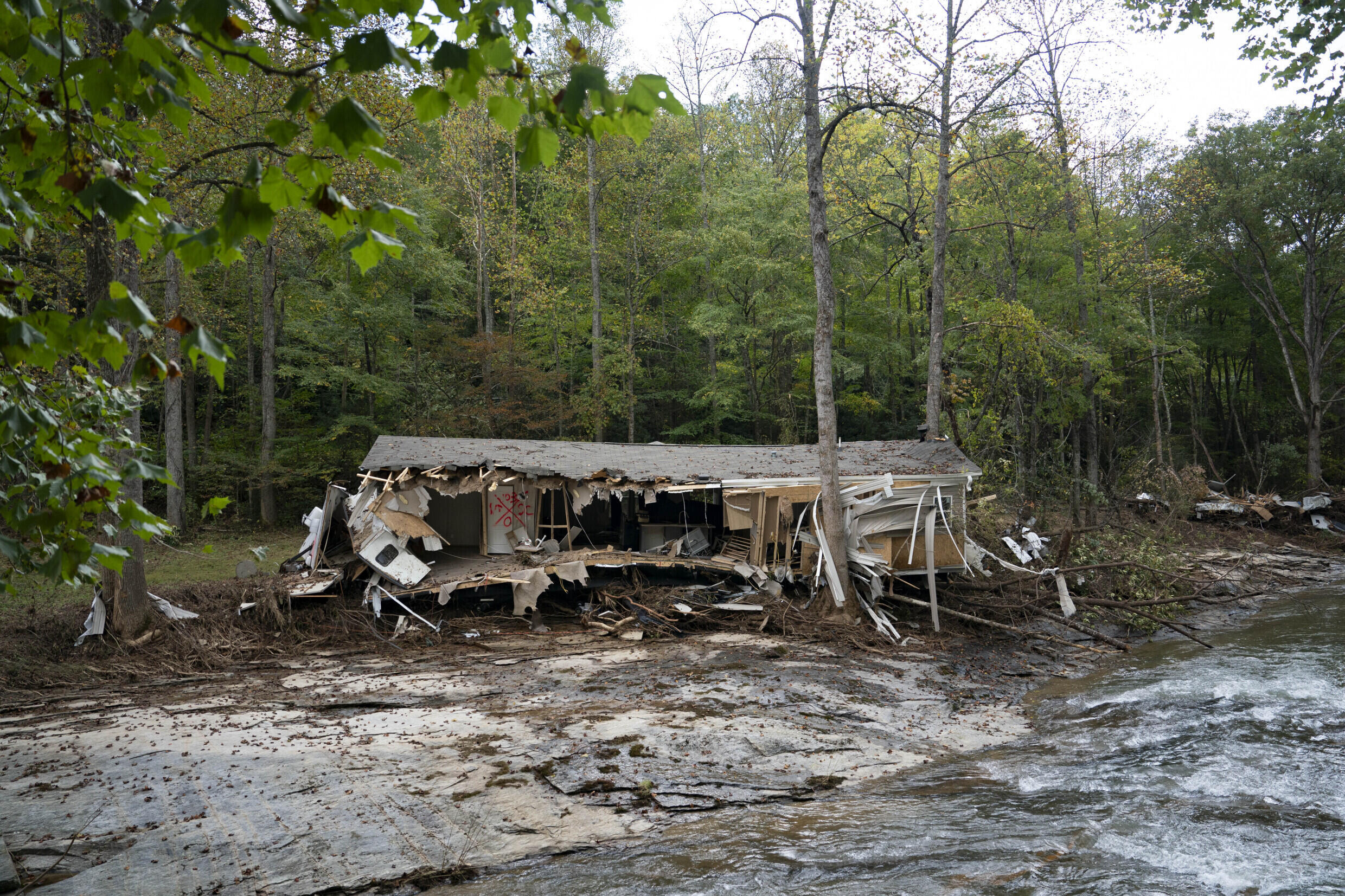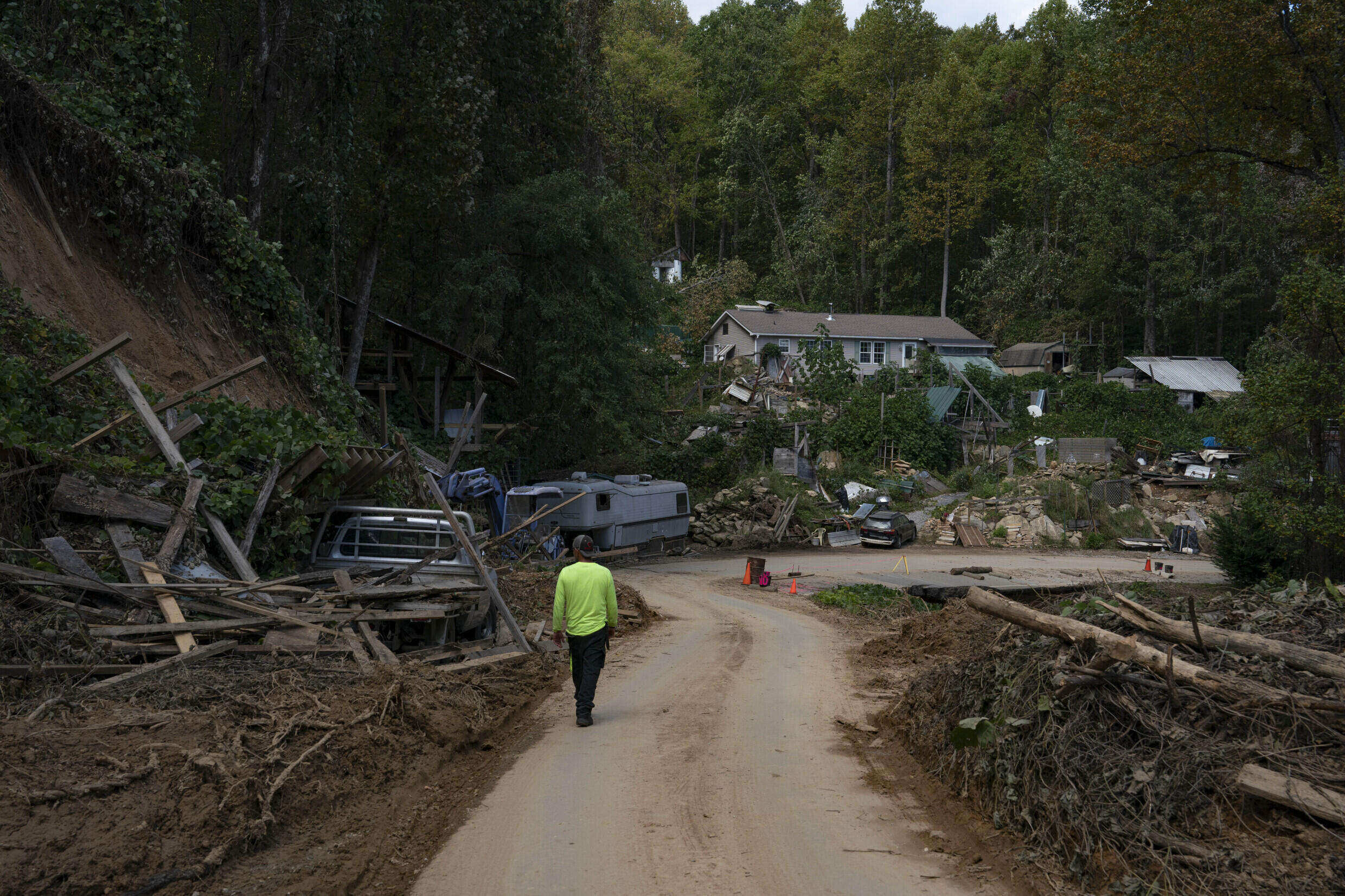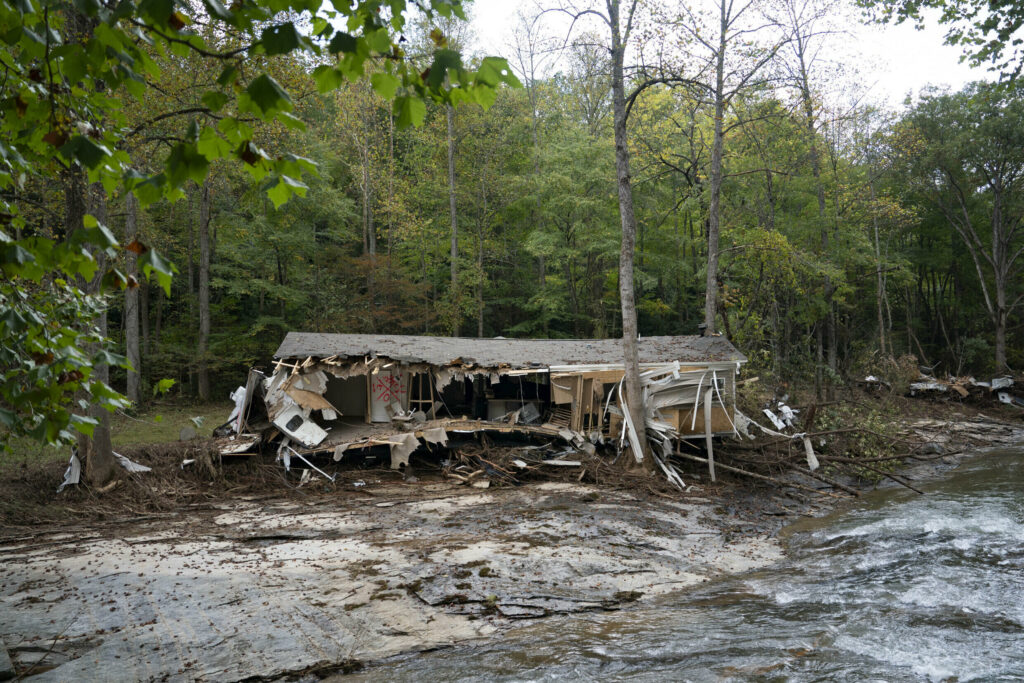The Impact of Hurricane Helene on a Mountain Community
Pensacola, nestled in the remote highlands of western North Carolina, is grappling with devastation following the impact of Hurricane Helene. The once-accessible roads have transformed into muddied trails winding through steep gorges as the storm has now left its mark on this tight-knit community.
Total Isolation After Catastrophe
“All principal routes into our town are obliterated,” lamented Christy Edwards, a lifelong resident. Speaking from where her artisan shop used to stand — swept away by swift currents — she shed light on the area’s suffering post-Hurricane Helene. The storm’s relentless rains caused widespread destruction and rendered several secluded sections of southeastern America virtually unreachable even days after it passed.
As winter looms with dropping temperatures expected to arrive shortly, Edwards expressed deep concern: “We are running out of time as these residents have no other source for heat aside from electricity; only a few possess wood stoves.” Set at approximately 3,000 feet above sea level (around 900 meters), this valley faces an imminent cold front while recovery efforts lag behind.
A Community United in Adversity
Meanwhile, at a bustling local fire station—now turned hub for survivors—essentials like food and warmth were being distributed generously. This site has become vital as residents seek refuge amid chaos; Janet Musselwhite shared her experience: “The situation is dire; we lack power and water access…going to town feels almost impossible.” She arrived with her friend Randi to leverage satellite internet service in attempts to communicate with family members.

The Toll Taken by Nature’s Fury
Amidst heartbreaking infrastructure failure lies loss—a woman tragically lost her life when mudslides ravaged the area early morning on September 27th due to heavy rainfall instigated by Helene; she became one among over 220 victims nationally since the hurricane made landfall—a grim statistic positioning it right behind Hurricane Katrina as one of America’s deadliest storms within recent history. Researchers indicate that climate change may have intensified Helen’s ferocity due to rising ocean temperatures.
This region rarely experiences hurricanes’ catastrophic impacts compared to lowland areas yet was blindsided this time around. David Rogers recollected standing near his home witnessing videos showcasing mobile homes that succumbed under nature’s wrath just downhill—although their occupants miraculously escaped without physical injury, they faced immediate medical emergencies thereafter.
Rescue Operations Amidst Chaos
The arrival of rescue personnel marked hope amidst despair while bulldozers worked tirelessly from dawn till dusk clearing countless debris littering roadways beneath heaps created by torrential waters’ fury. Amid all happenings was another glimpse into small acts promoting comfort: one resident zoomed past wearing paper towels attached hurriedly onto their vehicle’s back whilst darkness engulfed everything around them!

A Call For Immediate Support and Assistance
“This disaster is beyond our capability,” Edwards stated firmly regarding FEMA assistance difficulties including limited internet connectivity making access challenging for many locals lacking resources or means necessary provisions required during crucial moments such as these.”After all these years feeling neglected here within these mountains…It suffices!”
